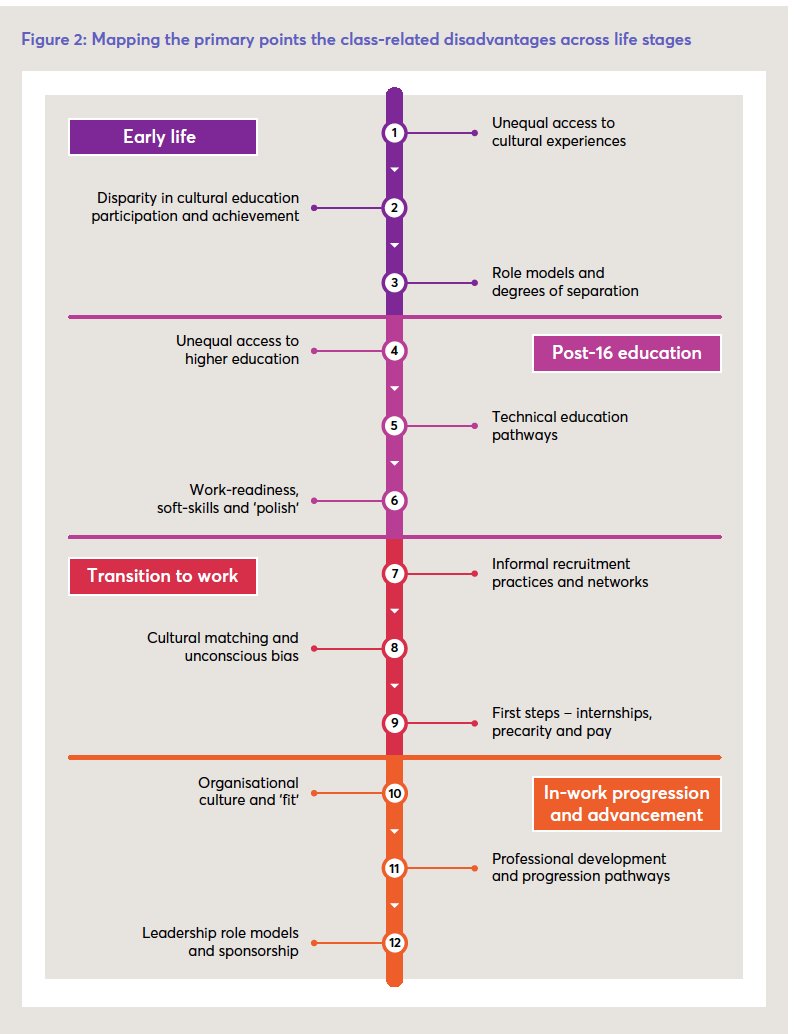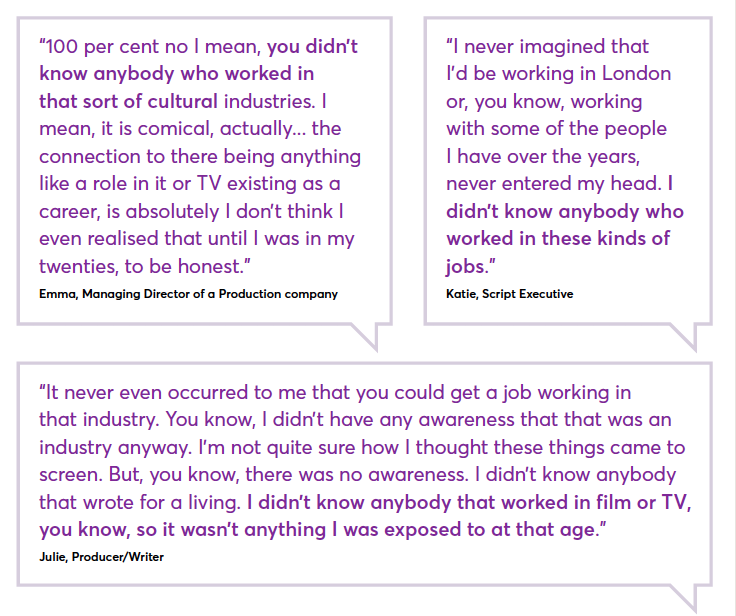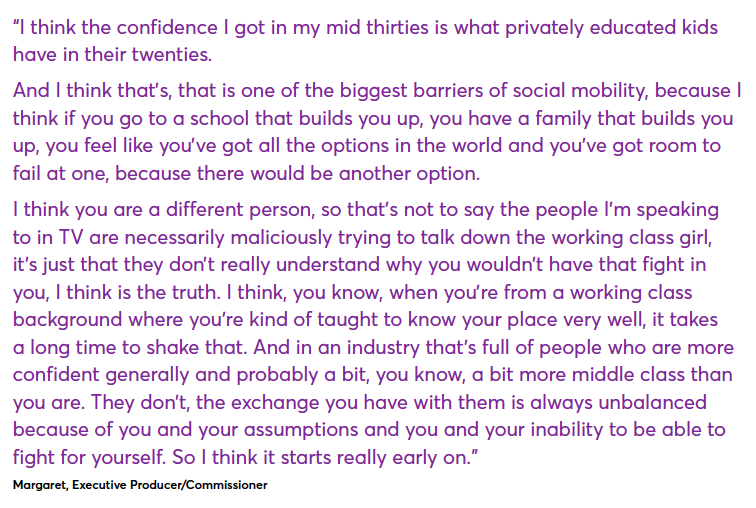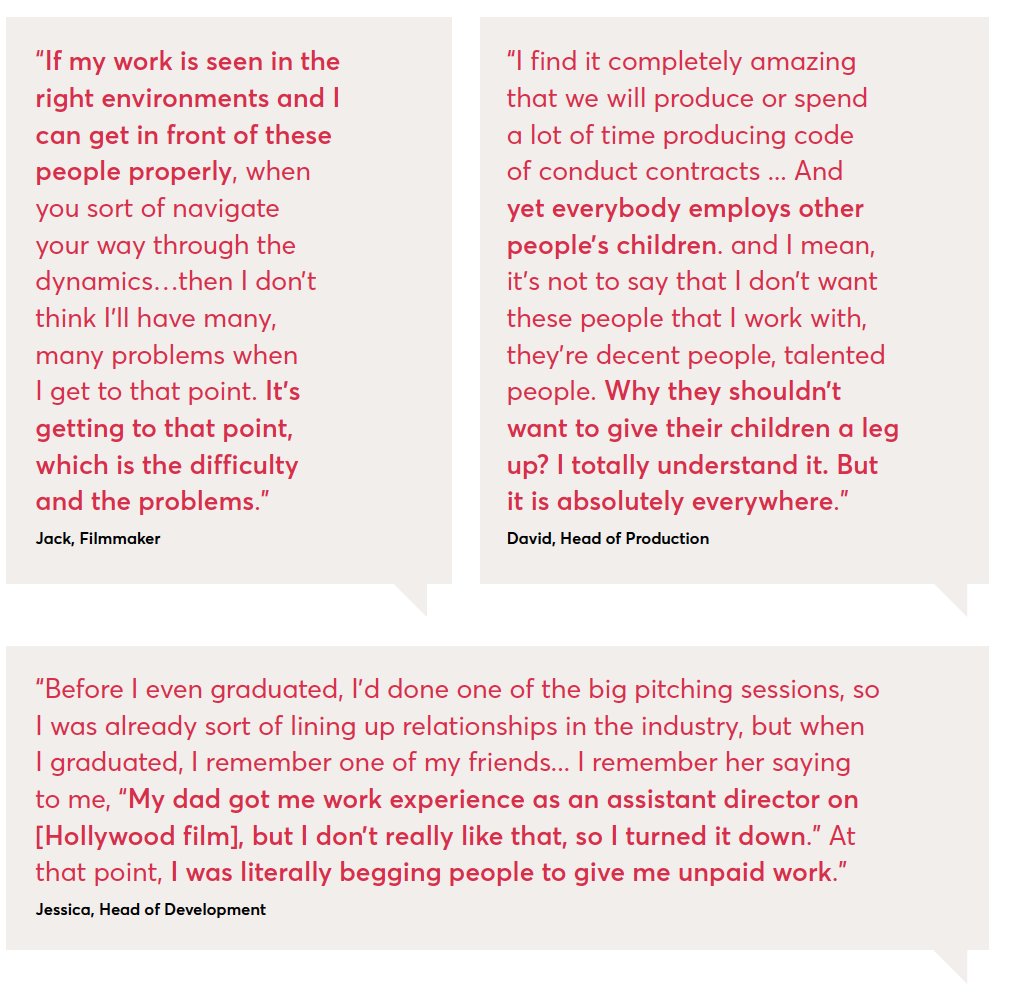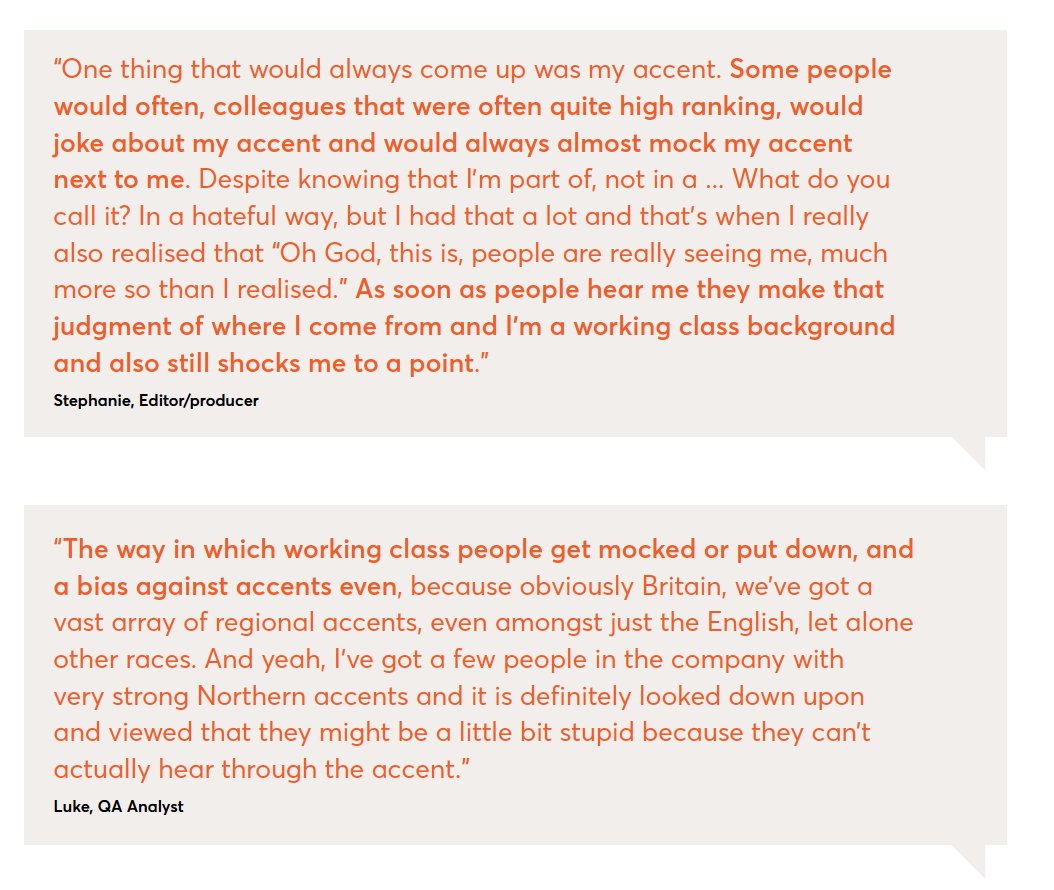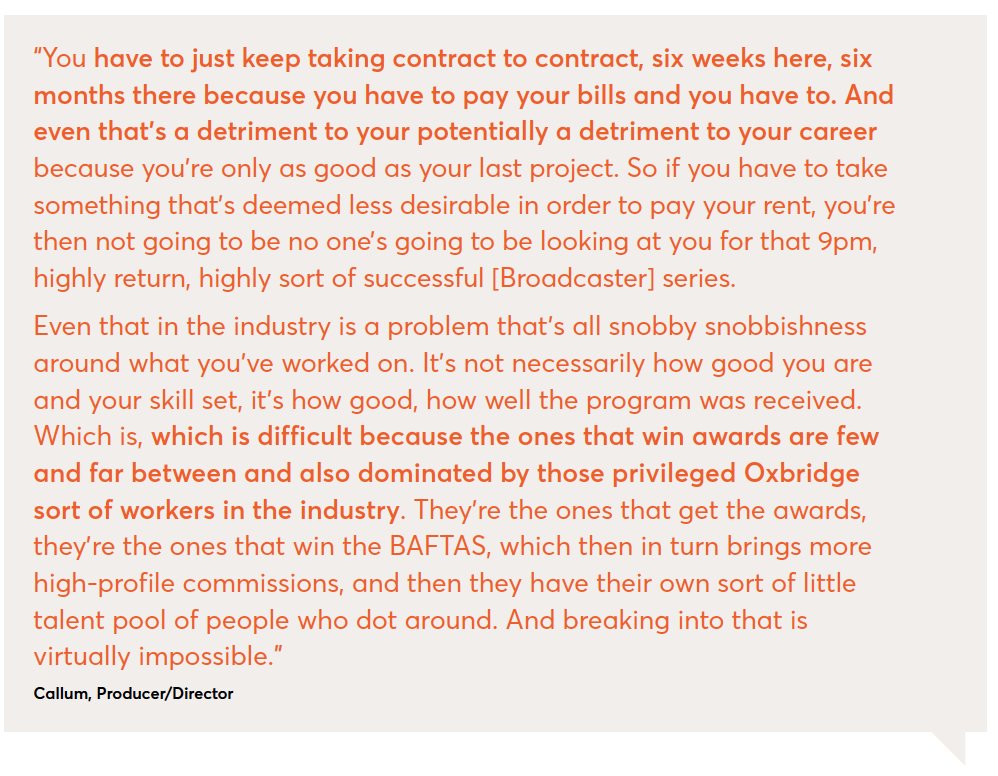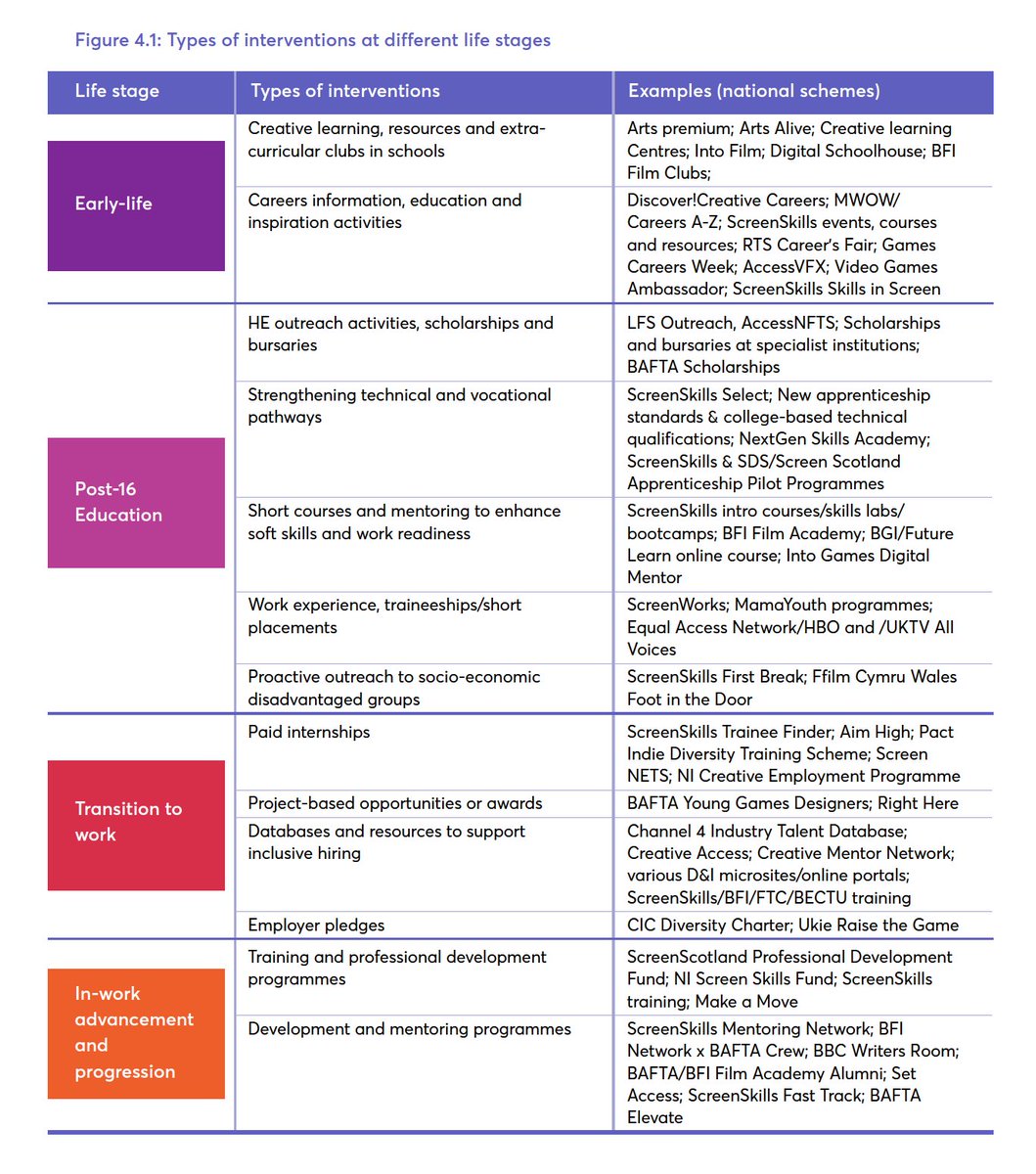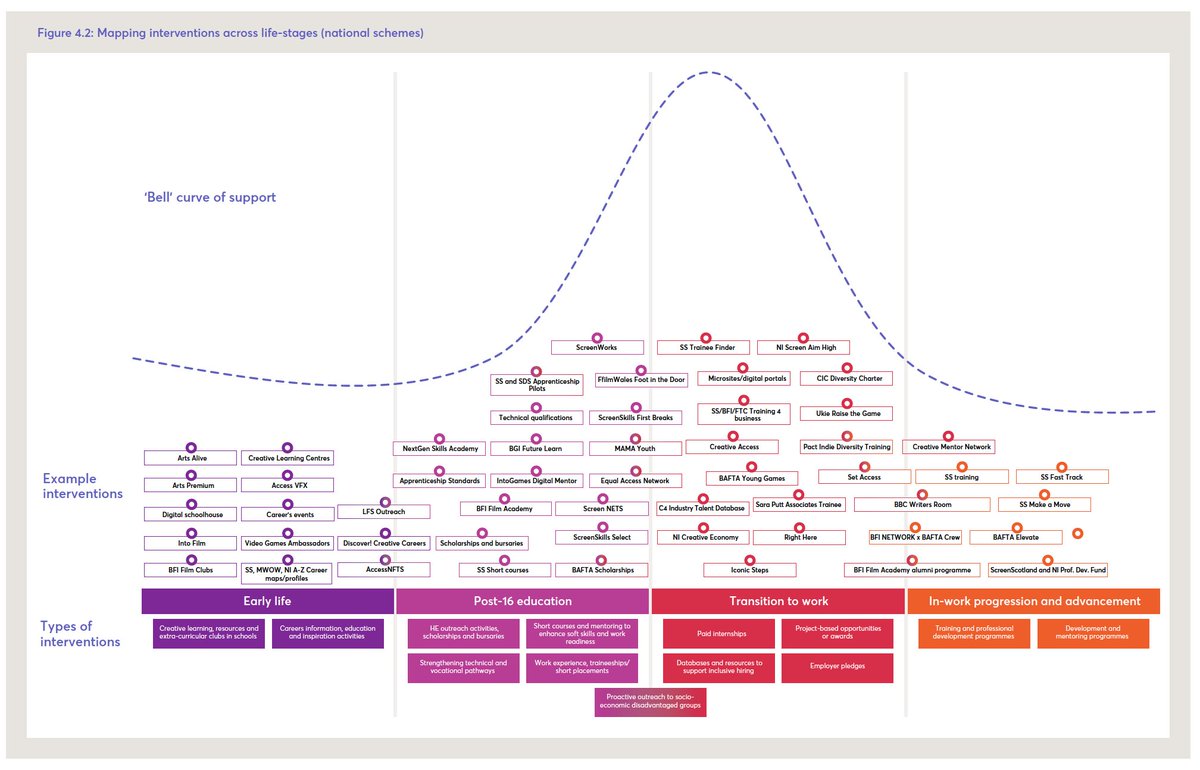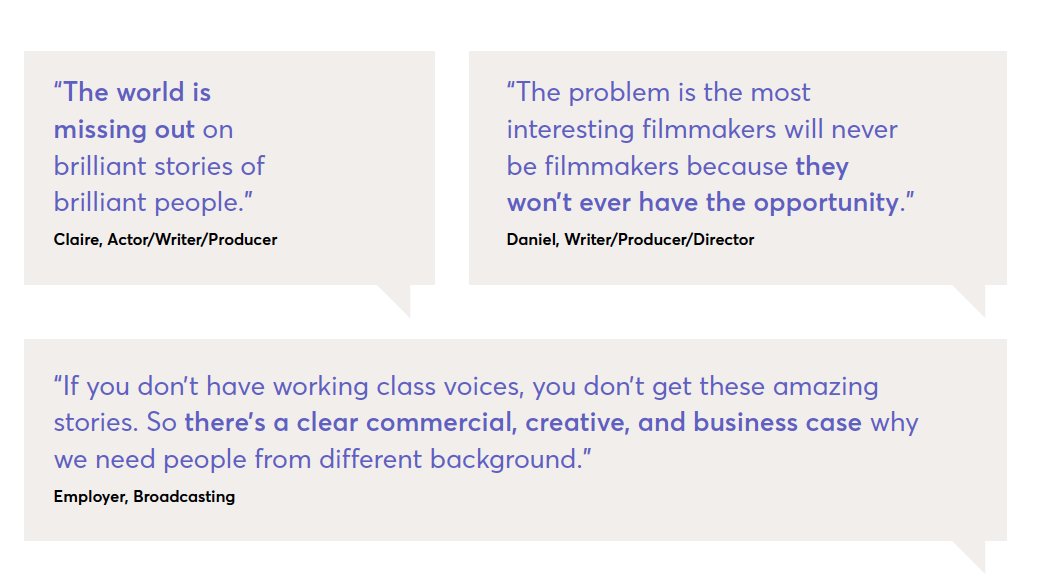NEW @creativepec RESEARCH ON THE CLASS CRISIS IN THE FILM, TV, AND SCREEN SECTOR LAUNCHES TODAY (its bad news) https://www.pec.ac.uk/research-reports/screened-out-tackling-class-inequality-in-the-uks-screen-industries">https://www.pec.ac.uk/research-... A  https://abs.twimg.com/emoji/v2/... draggable="false" alt="🧵" title="Thread" aria-label="Emoji: Thread">
https://abs.twimg.com/emoji/v2/... draggable="false" alt="🧵" title="Thread" aria-label="Emoji: Thread">
We use @ONS Labour Force Survey data, fieldwork interviews, consultations with employers, and a review of some of the current support interventions to show how social mobility is in real trouble in this part of the creative economy
2020 saw the lowest number of working class origin people working in key screen occupations since @ons started collecting this data in 2014
The absence of those from working class backgrounds in key screen jobs is for a whole complex set of reasons, and we identify 12 points where class related disadvantages are most keenly felt within individuals’ lives and careers
All of this research takes the intersection of class, race, gender, and disability seriously. We cant understand class inequalities without an intersectional perspective!
In early life there is unequal access to culture and cultural education, a lack of visible role models and a lack of connections to the industry
Post-16, routes into work are shaped by unequal access to higher education & flawed technical pathways, & few opportunities to develop the confidence & soft skills possessed by the middle class. Education is not levelling the playing field for routes into the screen sector
Entry to work sees more barriers for those from working class origins. Informal recruitment, low and no pay, and the need for networks, lock people out of the screen industries
Class-based exclusions continue when in work. Our interviewees described how their background marked them as ‘different’, & how they couldn& #39;t bring their whole self to work.
No one should face discrimination. Yet discrimination, as a result of having a different accent from the middle class & #39;norm& #39; of the screen industry, came up over and over again in our field work
Ultimately, the deck is stacked and the barriers are high, & social class plays a crucial role in why some people are successful. Screen seems to be a closed shop, with those who are already most privileged in British society getting the best jobs, the awards, and the rewards.
But at the moment that work is overly focused on entry points and the transition to work, when much more needs to be done to transform support for middle career and leadership roles.
Why does this matter? As one of our respondents told us “The world is missing out on brilliant stories of brilliant people.” & the ones with most potential may never get the opportunities offered to those from middle class origins who have social, economic, and cultural capital
Read much, much more here https://www.pec.ac.uk/research-reports/screened-out-tackling-class-inequality-in-the-uks-screen-industries">https://www.pec.ac.uk/research-... (there& #39;s huge amounts of detail on employers perspectives that I haven& #39;t even covered in this  https://abs.twimg.com/emoji/v2/... draggable="false" alt="🧵" title="Thread" aria-label="Emoji: Thread">) @CreativePEC are releasing a full report comparing social mobility across all of the creative industries and occupations this summer
https://abs.twimg.com/emoji/v2/... draggable="false" alt="🧵" title="Thread" aria-label="Emoji: Thread">) @CreativePEC are releasing a full report comparing social mobility across all of the creative industries and occupations this summer

 Read on Twitter
Read on Twitter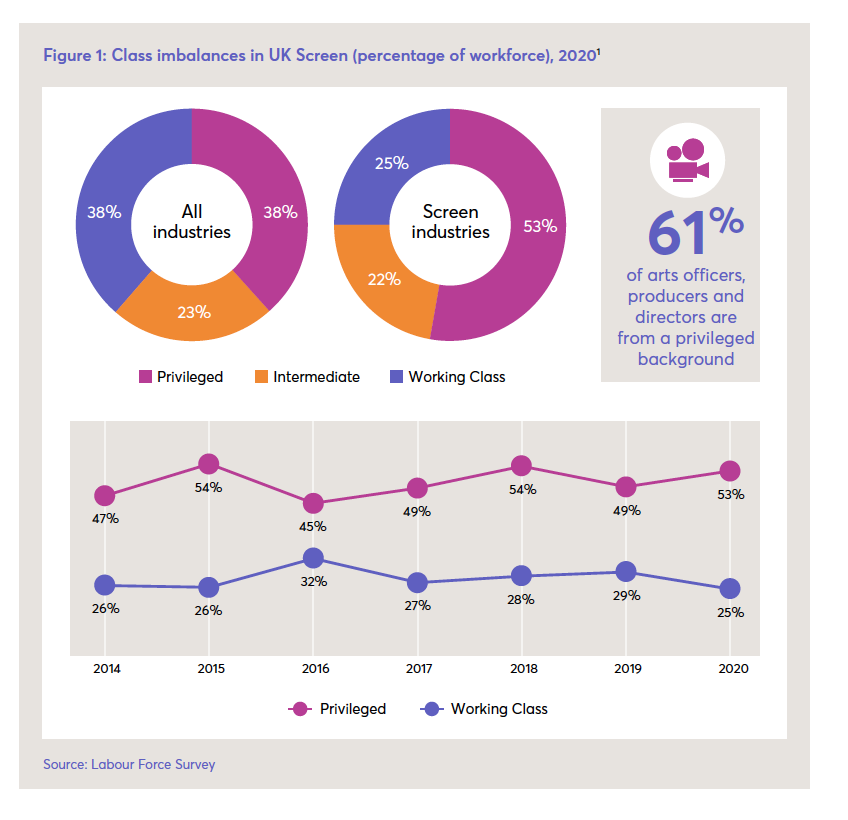 " title="NEW @creativepec RESEARCH ON THE CLASS CRISIS IN THE FILM, TV, AND SCREEN SECTOR LAUNCHES TODAY (its bad news) https://www.pec.ac.uk/research-... A https://abs.twimg.com/emoji/v2/... draggable="false" alt="🧵" title="Thread" aria-label="Emoji: Thread">" class="img-responsive" style="max-width:100%;"/>
" title="NEW @creativepec RESEARCH ON THE CLASS CRISIS IN THE FILM, TV, AND SCREEN SECTOR LAUNCHES TODAY (its bad news) https://www.pec.ac.uk/research-... A https://abs.twimg.com/emoji/v2/... draggable="false" alt="🧵" title="Thread" aria-label="Emoji: Thread">" class="img-responsive" style="max-width:100%;"/>
